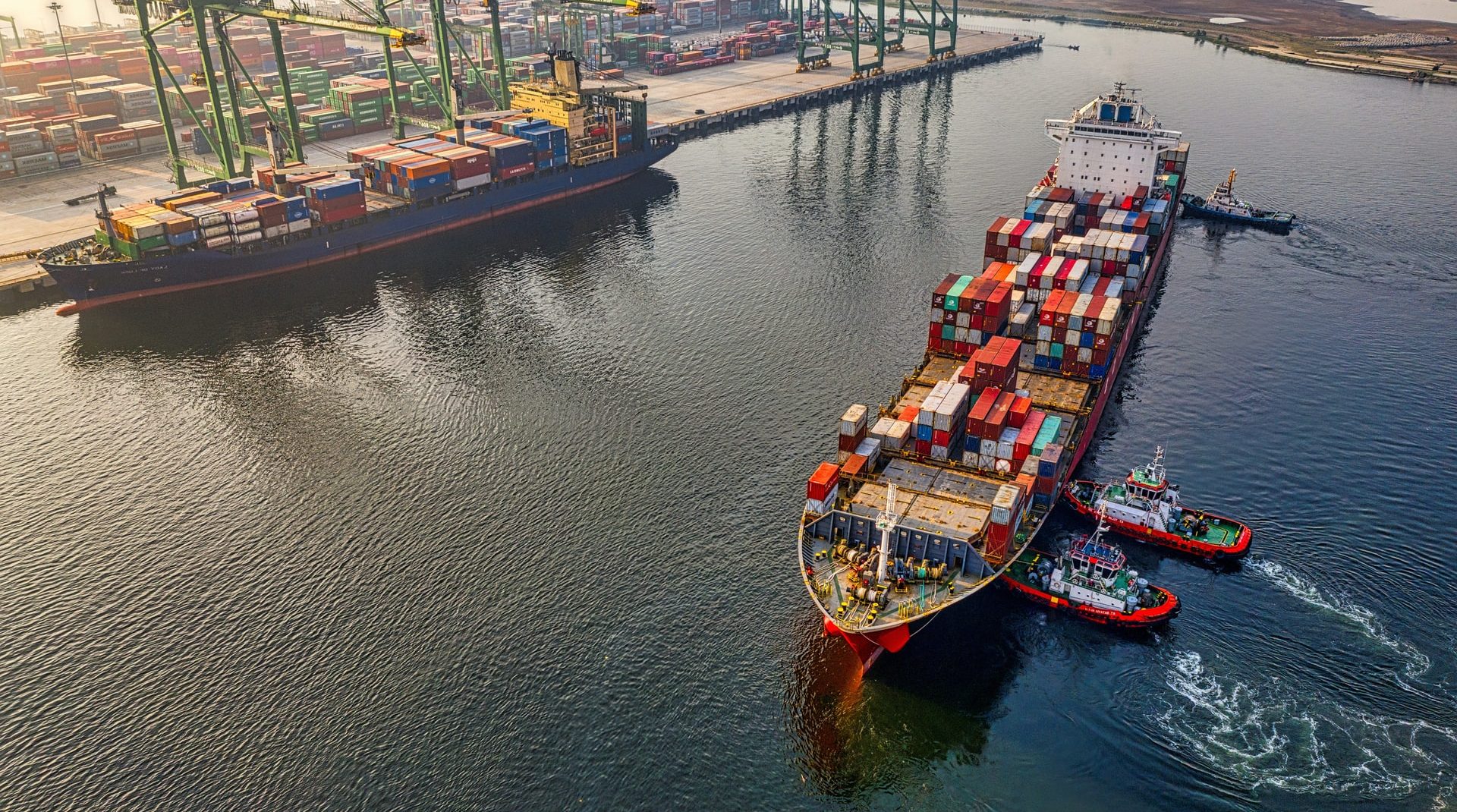Statements of Action for Food Systems Call to Action 4iAfrica Empowering Africa through Sustainable Solutions: 4iAfrica’s Mission 4iAfrica drives innovative solutions for Africa’s governments, businesses, and communities, focusing on clean energy, clean water, and climate action. Led by Al Karaki, the organisation spearheads projects like: Next-generation hydrogen power plants: Replacing fossil fuel plants with clean […]
COP27: What’s at stake?
From 7-17 November 2022, Egypt will host the 27th Conference of the Parties of the UNFCCC (COP27), with a view to build on previous successes and pave the way for future ambition to effectively tackle the climate emergency.
With each COP, the urgency to slash emissions and build resilience to the climate emergency on our doorstep, becomes ever greater. And yet, despite small glimmers of progress, we are still nowhere near the scale and pace of climate action needed to secure a net zero and resilient world by 2050. The latest NDS synthesis report shows that while emissions are no longer increasing after 2030, there is no evidence of a rapid downward trend science says is necessary this decade.
National governments must radically and rapidly strengthen their climate action plans and implement them before 2030, creating the conditions to collaborate with non-State actors so we can all go further.
The good news is that progress towards a net zero and resilience world in the real economy is well and truly underway. Businesses, cities and regions are powering rapid and transformational changes. But whilst this progress is welcome, the time is now for non-State actors to double down and deliver in response to increasingly heightened impacts.
In the midst of interlinked climate, energy, nature and food crises, the stakes have never been higher. At this COP27, the UN Climate Change High-Level Champions would like to see:
- Translation of commitments & pledges into implementation
- Elevation of adaptation and resilience
- A credible stocktake of progress
- A holistic approach that balances mitigation, adaptation and loss & damage
- ‘Assets to flows’ to scale finance
- Regionalization, localization & collaboration
- A just, managed, financed transition
Together with High-Level Champions for COP26 and COP27, Nigel Topping and Dr Mahmoud Mohieldin, the Climate Champions’ Team will be on the ground at COP27 representing multiple sectors across the global economy. The sectors below are just several of the many the UN Climate Change High-Level Champions work with to help converge and accelerate action that takes us to a net zero and resilient world.
Clean Power

If COP26 was notable for impressive financial and climate commitments from primarily countries in the Global North, COP27 is an opportunity to show the shift from commitments to action and implementation.
Clean power for the sake of the whole world needs to be not just about future financial commitments, but actual project development, and especially for large parts of Africa and Asia, an emphasis on providing a just and equitable energy transition.
For Clean Power, COP27 is going to be about credibility and action. Countries in South America, Africa, and Asia are watching Europe and North America to see if commitments translate into implementation, and for real action towards a just and equitable energy transition, especially in light of the energy crisis in Europe, and questions about the role of gas.
This is also a COP where the concerns of the Global South need to be central: energy access, clean cooking, and adaptation should be at the forefront.
Land Use & Nature

COP27 is a critical COP for nature as it precedes the delivery of the Global Biodiversity Framework to be developed under the Convention of Biological Diversity at COP15 in Montreal Canada from the 7-19 December.
COP27 will be an opportunity to understand Parties’ focus on NbS as they enhance NDCs and strengthen national adaptation plans. COP 27 will also be an opportunity to keep pressure on delivery of key nature-related announcements made at COP26.
In this decade we must halve emissions, enhance resilience and regenerate nature as planetary boundaries are closely approaching.
Parties can seize the opportunity to enhance their NDCs with nature-based solutions whilst delivering their sustainable development plans.
How can someone take action:
- Investors must stop investing in the conversion of intact ecosystems, especially deforestation and businesses that deplete nature and start funding high integrity NbS
- Investors can sign the following letter to facilitate delivery of their existing net zero commitment and increase investment in NbS
- Companies must commit to science-based targets for climate and nature, and to disclosing their impacts and dependencies on nature throughout their value chains
- Governments must deliver an ambitious global framework and action agenda for biodiversity at the upcoming COP15 and fully recognize nature’s role as a key climate solution in the formal outcome of COP27
- Investors, companies, governments and civil society must work together with great urgency to reduce and reverse the socio-economic drivers and pressure causing nature’s decline and rising GHGs
Agriculture
This COP27 will occur against a backdrop of a full-blown food, energy, and biodiversity crisis. Over-reliance on fossil fuel intensive agriculture and synthetic fertilizers has led to a depletion of soil and natural resources, increased dependence on foreign supplies, and put millions of lives at risk.
COP27 is an opportunity to pivot to regenerative agriculture, under a whole food systems approach, that can bring multiple benefits for climate, health, resilience, biodiversity, and social justice. Innovative finance has a large role to play in this.
COP27 is also an opportunity to reset our relationship to nature. NbS, including regenerative agriculture, have a central role in countries’ NDCs and national adaptation plans.
Without appropriate levels of climate finance and innovation in this sector, we simply do not have the technical or financial means to close the triple gap of producing more food, with less emissions, on the same amount of land.
The impact of not doing so is already devastating biodiversity, and will devastate vulnerable communities first. Lack of adequate food is the first and most sensitive climate impact in frontline communities. Developing countries will not be able to cope with the humanitarian and fiscal impacts of not acting.
A business-as-usual scenario will continue to deplete nature and generate huge externalities. The FAO estimates that at the current rate, we only have about 60 harvests left.
Steel
COP27 marks one year since the promise of 45 countries to make ‘Near-zero emission steel the preferred choice in global markets, with efficient use and near-zero emissions steel production established and growing in every region by 2030’.
These countries will be showing they can make good this promise, by endorsing a clear, collective plan of action.
In parallel, the global pipeline of conventional, high emission plants, largely powered by coal, are currently underway or in the planning stage. Standing behind tighter coal-phase out standards for financial institutions and the successful demonstration of just transition platforms are essential if the sector is able to make a U-turn in the parts of the world where coal-fired steel is just ramping up.
Road Transport

This COP must signal the acceleration of more companies and countries signing up to the ZEV Declaration and the Global MOU to commit to 100% ZEV sales by 2040 globally and 2035 in leading markets.
We’re looking out for forward-looking policy implementation, enforcement and monitoring, alongside more ambitious targets and a scalable achievability roadmap.
Avoid, Shift and Improve is a concept that we all have been religiously following. However, we need to broaden our horizon to think more about the transport sector as a booming economic opportunity, especially in the developing countries.
Total land transport activity is expected to more than double by 2050 compared to 2015, making it the fastest growing emitting sector. Decarbonizing Transport is a function of three elements: Travelling less, using cleaner fuels, and sharing travel modes.
How to take action
- New countries sign ongoing ZEV declaration
- Support Signatories on the implementation of commitments
- Create momentum towards active mobility (avoid) and public transport (shift) with a focus on: E-Buses, Urban Freight, Two & three wheelers and SUMPs & NUMPs
- Increase financing available to realising the end-of-ICE breakthrough for Buses
- Encourage governments of the Global North to commit financing to realising the End-of-ICE, and encouraging governments of Africa and LAC to commit to 2030 net zero targets in the transport sector & the Glasgow Declaration
Read more about Road Transport’s Race to Zero
Shipping

This is the last COP before the IMO meets in Spring 2023 to decide the final GHG strategy, of which we need to set the sector on a 1.5C aligned trajectory based on the IPCC science, with ambitious 2030 and 2040 targets. This COP27 needs to give confidence to policy makers that this transformation is possible and ensure that the outcomes of COP are transferred to the IMO policy negotiations.
Global Shipping is a source of solutions; this is our chance as non-state actors to demonstrate that action is being taken to show that the transformation of shipping is happening and this unlocks wider societal and resilience benefits. Shipping as a source of solutions is a demand market for ramping up investment into Green Hydrogen. Shipping is leading the way in how it is addressing the capability and green skills gap. Shipping is also leading the way in climate finance with the agreement at the IMO in the summer to develop carbon pricing. This is a source of finance that not only accelerates the decarbonization of the sector but provides developing countries with access to a multilateral fund for investment into green infrastructure and resilience and adaptation.
How to take action
There are collaborative initiatives covering all aspects of the maritime system, depending on who you are and where you are in value chain for example:
- Zero Emission Shipping Mission
- Getting to Zero Coalition
- Just Transition Maritime Taskforce
- CoZEV – shipping freight cargo owners
- First Movers Coalition
- Race to Zero
- Race to Resilience
- Join the Maritime Resilience Breakthrough community
Pharma & Biotech

COP27 for Pharma and Biotech is a chance to come together as a sector to accelerate implementation of climate action plans, explore areas for collective action, amplifying the progress that’s been made while highlighting the path ahead.
Because this is the implementation COP, a narrative of new commitments or further promises without tangible action to report is at stake. We need to make good on the promises that have been made at previous COPs and continue the race to zero carbon together.
How to take action
- Commit to the RtZ
- Begin working towards the Breakthrough Outcome and the 5 levers
- Connect with your industry peers to understand what approaches have been successful, what challenges have been faced, and where can we work together to amplify action. We’re racing to zero as a collective whole, with radical collaboration to achieve the goals of the Paris Agreement
Water

Due to the relevance of water for climate adaptation and enhanced resilience, the Egyptian COP presidency has placed water as a core topic of COP27. The planned Water Day, which involves a Water Initiative and a prominently placed Water Pavilion under the lead of the Egyptian Presidency, will provide new and important opportunities for raising awareness on the strong interplay between water and climate resilience. The Initiative on water and adaptation (AWARE) is also essential and should be seized to enhance resilience action. This initiative offers many starting points for improving the integrity of water and climate change adaptation. Joint action should be used to sharpen the initiative, to ensure that it can act sustainably and purposefully without duplicating existing initiatives and create impact beyond COP27.
The Egyptian Presidency is placing implementation issues at the heart of COP27 – so what we need to see from this COP is urgently improved implementation of the Framework Convention on Climate Change and the Paris Agreement. The focus should be, in particular, on countries and vulnerable people affected by water-related risks and threatened water security. Based on the planned thematic days of COP27, the following adaptation-related and water-related topics will play a key role here: Financing, Adaptation, Water, Biodiversity and Energy. Other cross-cutting themes include gender and youth and civil society.
Carbon Removals

Carbon dioxide removal is not on the official UNFCCC agenda. However, if we are to keep 1.5 alive, they need to be. The latest IPCC report shows that carbon removals are included in all 1.5C aligned scenarios.
This year, a virtual Carbon removals pavilion has been launched; ‘Carbon Removals at COP’ at carbonremovals.earth. This shows the action, enthusiasm and optimism of the non-state actor community across the full carbon removals ecosystem.
It is a chance to show what a just and responsible carbon removal ecosystem looks like to ensure we are able to achieve our 2030 breakthrough: By 2030, high- and lower-durability carbon dioxide removals are responsibly scaled to remove 1 and 3 billion tonnes of atmospheric CO2 per year, respectively.
The IPCC estimates we will need to remove 5-16 Gigatonnes of CO2 from the atmosphere every year by 2050 and beyond to reach our Paris Agreement targets. This amount is equivalent to reforesting the entire area of Sweden (5Gt) or Peru (16Gt) each year. But to achieve the scale required to keep 1.5 alive, we need a broad portfolio of different carbon removal solutions whilst focusing on their benefits. No single approach of removing atmospheric carbon is large enough on its own.
If we do not start scaling our global carbon removal capacity now, we are likely to see an overshoot of 1.5C. Carbon removals can increase our resilience, create jobs, and positively impact human health and biodiversity. Scaling efforts now can help us to achieve a just transition.
Opinion: Only radical measures of change will break plastic’s toxic grip
To mark this year’s Earth Day theme of Plastics Vs Planet, Sian Sutherland, Co-Founder, A Plastic Planet & Plastic Health Council, imagines a post-plastic world, abundant with innovation, where true regenerative circularity is achieved.
Where are we and where are we going next? Key climate action themes for 2024
Beginning of the end of the Fossil Fuel era In the COP28 outcome governments explicitly stated that we must transition away from fossil fuels in a just and equitable manner. It also underscored the importance of the global goal on adaptation in strengthening resilience and reducing vulnerability to climate change, as well as the vital […]
A groundswell of businesses, cities, regions, civil society and experts offer solutions for a strong response to the global stocktake
As part of the final phase of the stocktake, governments and real economy actors were invited to share their views on how countries could best come together at COP28 to respond.



